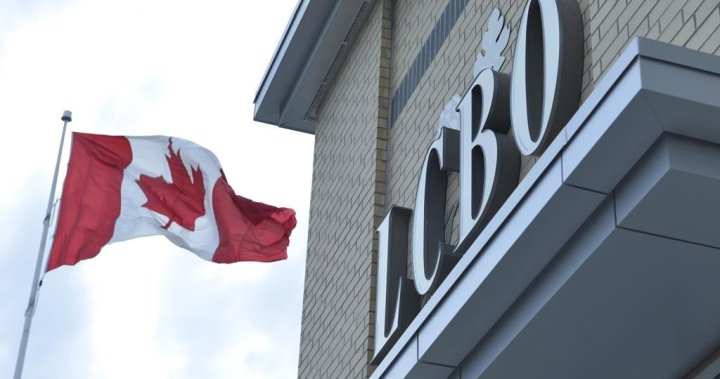The Canadian government, under Prime Minister Justin Trudeau, responded to U.S. President Donald Trump’s tariffs with counter-tariffs totaling $155 billion. This retaliatory measure, effective February 4, 2025, prompted swift action from several Canadian provinces, primarily targeting American-made alcoholic beverages. Provincial premiers, wielding considerable control over liquor distribution within their jurisdictions, announced plans to delist and remove a wide range of American wines, spirits, and beers from store shelves and wholesale distribution channels. This represented a significant escalation in the trade dispute, impacting a lucrative market for American producers.
Ontario Premier Doug Ford spearheaded the retaliatory measures, directing the Liquor Control Board of Ontario (LCBO), the province’s alcohol wholesaler and retailer, to cease sales of American alcoholic beverages. Ford emphasized the substantial sales volume of U.S. products, estimated at nearly $1 billion annually, as justification for the move. The LCBO’s action not only removes American products from its own stores but also restricts their availability to restaurants, bars, and other retail outlets that rely on the LCBO for wholesale supply. The directive encourages consumers to support domestic Canadian brands as a replacement for the delisted American products.
British Columbia Premier David Eby took a more targeted approach, focusing on products originating from Republican-led states. The province’s Liquor Distribution Branch (LDB) immediately halted new purchase orders for liquor from these states and initiated the removal of top-selling brands, including Jack Daniel’s, Bacardi Rum, Tito’s Vodka, Jim Beam, and Bulleit Bourbon. While existing inventory from Republican-led states would continue to be available until depleted, the LDB clarified that products from Democrat-led states would remain unaffected. This nuanced strategy directly linked the trade action to the political landscape within the United States.
Manitoba also joined the retaliatory effort, with Premier Wab Kinew ordering Manitoba Liquor and Lotteries (MBLL) to cease sales and future orders of American alcohol. Kinew characterized Trump’s tariffs as an attack on Canadians and encouraged consumers to support local Manitoba breweries and distilleries. This province-wide ban reflects the growing support for retaliatory measures against the U.S. tariffs.
Quebec, despite initial indications from Premier Francois Legault of imposing counter-tariffs on unspecified American goods, did not immediately target alcohol. The Société des alcools du Québec (SAQ) reported receiving no directive from the provincial government regarding American liquor sales. This suggests a more cautious approach in Quebec, potentially prioritizing alternative products for counter-tariffs to minimize consumer impact.
Nova Scotia, like other provinces, implemented a comprehensive ban on American alcohol sales through the Nova Scotia Liquor Corporation (NSLC). This province-wide removal of U.S. products further amplified the collective response from Canadian provinces, signaling a unified front against the American tariffs. The widespread nature of these actions highlights the significant economic leverage wielded by provincial liquor boards in the trade dispute.
The coordinated response from multiple Canadian provinces demonstrates a significant escalation in the trade tensions between Canada and the United States. By targeting a popular consumer product like alcohol, Canadian provinces are applying pressure on American producers and attempting to leverage the economic impact to influence U.S. trade policy. The long-term effects of these measures remain to be seen, but the immediate impact is a significant disruption to the cross-border trade in alcoholic beverages and a heightened awareness of the ongoing trade dispute among consumers in both countries. The various approaches taken by the provinces also reflect differing political and economic considerations, highlighting the complexities of navigating this trade conflict.

